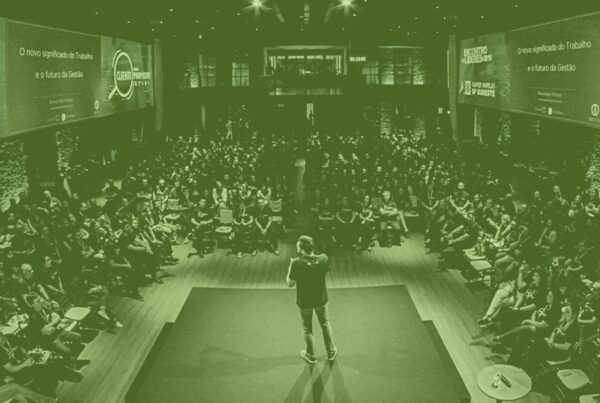Event gamification has revolutionized the way we plan events and measure their success. It boosts audience engagement and helps event planners reach their event goals in quantifiable and seamless ways. No wonder it has become one of the most popular benefits of event platforms.
Most event platforms on the market offer both in-person as well as virtual event gamification solutions. From missions and challenges to competitions, there are many ways to make your attendees feel truly immersed in the experience. No matter what is going on in the world, games can always bring back a sense of optimism, unity, and healthy competitiveness to our events.
Event gamification is not a means to an end, though. Your gamified challenges should have a purpose and clearly defined goals. And remember: always keep it friendly, challenging, and social.
Today, we’ll explore the definition of gamification, why you should add it to your event strategy, and how to best implement it based on various event goals.
What Is Event Gamification?
To gamify means to take the mechanics of a game and give them non-gaming applications in workplaces, marketing strategies, or events. Therefore, event gamification incentivizes your attendees to become active participants by adding game-like features to your event. For example, your audience can complete challenges, receive points for each completed challenge, and see where they are on a leaderboard. Different challenges can be worth different amounts and those who win or participate in the game can also receive prizes.
This exciting event trend has been around for ages, but thanks to the speedy development of event technology solutions, it has now reached brand new heights. Gamified challenges typically live on event platforms and can be translated well into virtual, hybrid, and in-person environments. Thanks to data analytics, event professionals can now measure the success of event gamification and attendee engagement with unprecedented precision. No wonder it is one of the most important virtual event platform features for many event planners.
Why Event Gamification?
Event gamification is not just about having fun and creating great memories. Gamification statistics show that these processes do wonders for productivity, profitability, and engagement at the workplace and learning institutions. And the same holds for events.
Planners shouldn’t simply implement event gamification for the game’s sake – it should be a strategic decision. Gamification should help planners achieve their event goals. For example, planners can aim to improve networking opportunities, sponsor and exhibitor engagement, session attendance, or brand recognition. You can also use gamified challenges to highlight your sponsors or show your audience what matters to you. PCMA EduCon 2021, for example, hosted a walking challenge to promote fitness and health.
Event gamification helps you encourage your attendees to focus their attention on what matters. For example, if you want your attendees to visit as many exhibitors’ booths as possible to foster better lead generation, incentivize that. Similarly, if you want people to network, set up missions around meeting new people.
 How To Gamify Events?
How To Gamify Events?
Let your audience know about your planned games ahead of time to build a buzz and possibly even attract a wider audience. Include gamification in your event marketing strategy – event gamification works best when people know all about the challenge before the event kicks off.
As mentioned, choosing one method of gamification for events over another depends on your specific event goals. Find an event platform that best supports your needs and clearly define the rules of the game. Most of the best current event platforms offer gamification solutions, but they do not all provide the same services.
Challenges and missions shouldn’t be siloed from the rest of the event. Remember, people are motivated by intrinsic and extrinsic factors. Some compete for awards, some enjoy competing, while others appreciate social recognition and socializing. Consider the following tips:
- showcase the leaderboard on the event platform as well as on a big-screen and social media,
- give a public shout-out to winners at the event and on social media,
- give the winner a chance to lead a team in a breakout session.
Gamification Ideas
Event platforms offer various solutions for gamification at events. Among the most popular game formats are contests with points systems and leaderboards, scavenger hunts, and social media activity. Since many platforms offer customization and white label interfaces, event planners can also choose to build their missions from scratch and name them whatever they’d like. For reference, check out InEvent’s gamification presentation.
Here are some of the most popular ways of implementing gamification at conferences, trade shows, and corporate events.
Gamified Polling & Feedback
Getting valuable feedback about speakers and the quality of content is crucial for many event planners. As soon as the session ends, push surveys to your attendees and gather insights in real-time. Their memories will still be fresh and they’ll get something in return, be it points, awards, or a clue for the next step in the scavenger hunt.
Promote Attendee Communication With Icebreakers
While networking can often take care of itself at in-person events, it’s not as easy to spontaneously make connections at virtual events. When paired with gamified challenges, virtual networking doesn’t feel as rigid and awkward.
Planners can also encourage the audience to get conversations started on the platform by asking icebreaker questions. And there’s no need to wait until the big event either; when attendees log onto the platform weeks before the event, they can meet many interesting attendees before the event even starts.
Reward Early Check-In
It’s not just the attendees and stakeholders who can benefit from gamification – planners can use it to their advantage too. And we’re not just talking about all that valuable data that helps them measure the ROI. Planners can reward attendee behavior that makes event management easier, such as checking in early. This can be especially valuable at virtual events where the pressure on tech support can escalate fast when everyone is joining the event at the same time. By letting people gather on the event platform early, they’ll explore your virtual venue and get familiar with the platform’s features in time.
Boost Lead Generation For Exhibitors
Delight your exhibitors by giving them what they came for: lead generation. For each booth they visit, give your attendees points, credits, or badges. Exhibitors and sponsors can present themselves in unique ways and reward those who come to the event with their own gamified raffles and competitions. Gamification especially comes in handy for exhibitors in virtual events and hybrid events.
 Event Gamification: Let The Fun Begin
Event Gamification: Let The Fun Begin
We’ve explored the definition of event gamification, why it matters, and how to best implement it. Gamified methods can help influence attendee behavior to increase event engagement and ultimately, achieve specific goals in your event strategy. Gamification turns your attendees into active participants who are fully immersed in the experience you designed for them. And the more unforgettable your event, the more likely they’ll come back and recommend it to their colleagues. How’s that for that return on investment?
If you want to learn which event platforms offer gamification and high audience engagement levels, check out our list of top 100 event platforms. And in case you have any additional questions about gamification or other aspects of the event management process, reach out to us. The Endless Events team is here to help.
Editor’s Note: This was originally published on August 12 2016 and has been completely revamped and updated for accuracy and comprehensiveness.










